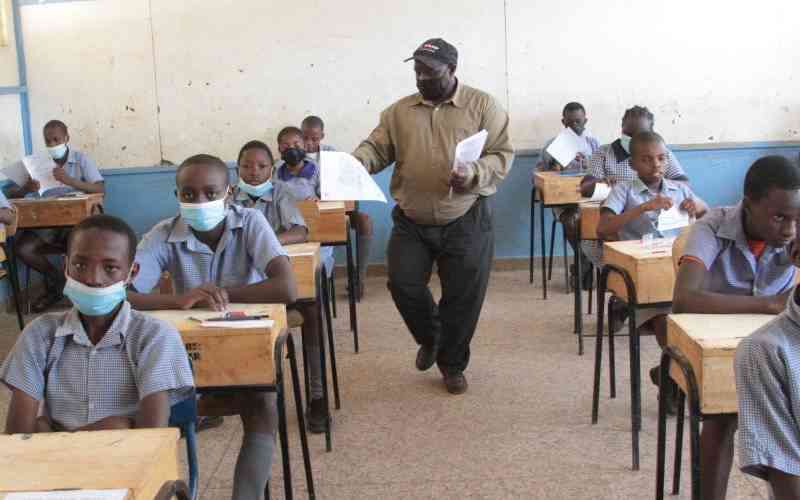As teachers of English and literature and KCSE candidates know, the overall grade in the language is influenced by the scores in English Paper Three. Unlike the English Paper one and Paper two, which have standard marking schemes set by the Kenya National Examinations Council, the candidates effort determines what they will score. Their answers are given the benefit of doubt during marking.
Though Paper Three is commonly called the imaginative and essay writing paper, it is based on set books. The creative writing implied in it is not free range but confined to the content of the set books.
From the high levels of analytical and writing skills required in this paper, some teachers and candidates actually view it as a hard nut to crack
Paper Three is based on three areas; composition writing, essay on compulsory set book (Fathers of Nations in 2025) and an essay from one of the three optional set books. These are Silent Song and Other Stories, Parliament of Owls and Artist of the Floating World.
Follow The Standard
channel
on WhatsApp
In the first question, candidates are required to write a composition. It can be a start or end of a story, a proverb, tale or a discursive writing based on a given topic. From the examiner’s view, many candidates opt to delve in the start or end imaginative story and they score well in it. A caution though, the cardinal rule in writing a good story is to be creative, original and to use of pleasant language. good paragraphing and suspense are also essential.
A superb imaginative story must have “merit ticks,” which earn candidates extra scores.
Candidates earn these when they enrich the story with vocabularies, idiomatic expressions, witty proverbs, turns and twists, a variety of sentences and dialogue. It is imperative for candidates to write a captivating story which will capture and maintain readers (examiners) attention. By doing so, the candidate will work will have a spark, the ultimate leverage for getting the highest possible score.
However, composition writing should not exceed two pages lest candidates are penalised for length.
The second and third questions of paper three require candidates to write essays. It is crucial to note that an essay is different from imaginative writing.
The essays must be derived from set books which the candidates have read and comprehended. An essay has three major components: Introduction, body and conclusion.
A good introduction involves one paraphrasing, that is, rewriting the question using one’s words and understanding. It is advisable for candidates to use words found in the set book in question when writing an introduction instead of using general words that may create confusion.
The body of an essay encompasses three components: topic sentence, episodes and link. For a candidate to score to the maximum, they must write four detailed paragraphs. Each paragraph must have a topic sentence (what the paragraph is about), episodes (illustrations from the set book to support the argument in the essay) and the link (conclusion of that paragraph). The last part of an essay is conclusion. It is where the candidate supports or disown the message in the question.
From the examiner’s perspective, teachers must ensure that their learners hone their techniques of writing composition. These skills can be acquired by exposing students to class readers, newspapers and magazines. Giving candidates assignments in writing a story and an essay every few days can go a long way in preparing them for paper three.
Mr George Mwangi teaches English and Literature at St. Charles Lwanga High School in Thika. [email protected]
Follow The Standard
channel
on WhatsApp
By George Mwangi
